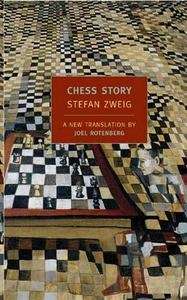Chess Story

Editorial New York Review Of Books
Fecha de edición diciembre 2005
Idioma inglés
Traducción de Rotenberg, Joel
EAN 9781590171691
96 páginas
Libro
encuadernado en tapa blanda
Resumen del libro
Chess Story, also known as The Royal Game, is the Austrian master Stefan Zweig's final achievement, completed in Brazilian exile and sent off to his American publisher only days before his suicide in 1942. It is the only story in which Zweig looks at Nazism, and he does so with characteristic emphasis on the psychological.
Travelers by ship from New York to Buenos Aires find that on board with them is the world champion of chess, an arrogant and unfriendly man. They come together to try their skills against him and are soundly defeated. Then a mysterious passenger steps forward to advise them and their fortunes change. How he came to possess his extraordinary grasp of the game of chess and at what cost lie at the heart of Zweig's story.
This new translation of Chess Story brings out the work's unusual mixture of high suspense and poignant reflection.
Biografía del autor
Stefan Zweig es un bio grafo peculiar. Escoge personajes poco probables, figuras extremas, movidas por obsesiones y lacerantes contradicciones internas. Personajes que, como Fouche o Magallanes, se encuentran envueltos en momentos cruciales, cuyas decisiones desencadenan, de una forma u otra, consecuencias imprevisibles con repercusiones enormes. Tambie n la de otros, como von Kleist o Nietzsche, en cuya hondura, soledad y melancoli a parece que retrata Zweig la suya propia. En el caso de Nietzsche, el retrato de los tormentos del genio, el sentido moral con el que mira a la verdad, captan parte del drama interno del autor y del que este percibe en el destino de la Europa de posguerra que tiene ante si .








